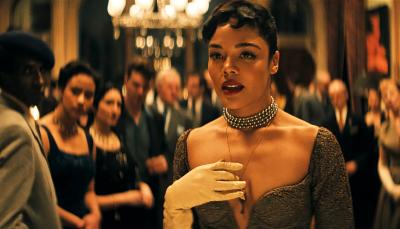Happy Birthday, Shakespeare: Things that Might Surprise The Bard

Shakespeare was versatile as both a poet and a playwright. His works, still constantly in production to this day, are the most frequently staged plays in the history of the theater.
Not only that, but think about how difficult it is to keep a literary career going during one’s lifetime let alone to continue to sell books long after the author has passed away. In a Forbes article from 2005, it was estimated that Shakespeare sells 10 million copies of his plays worldwide making a conservative $15 million annually. Alas, no family members are collecting on those royalties these days.
Just in case these monetary facts about his longevity fail to astound The Bard of Stratford-on-Avon, perhaps the following examples about his continuing influence upon literature would make Will sit up and take notice.
In the 21st century, school children are still learning and reciting his stuff: Lauren Cooper (Catherine Tate) is neither a disciplined nor an obedient student. But what her new English teacher, Mr. Logan (David Tennant), doesn’t know is that she has Shakespeare’s Sonnet 130 memorized to the letter. I can distinctly remember having to recite a Julius Caesar soliloquy in 8th grade.
His “Scottish play” curse still has actors in a tizzy: Actors have always been a superstitious lot. Even 200 years after Shakespeare occupied the Globe Theatre, these Regency era performers still feel compelled to counteract the reputed curse of Macbeth with a silly cleansing ritual.
Contemporary people are still using phases he invented: Though much of our modern way of speaking would be unrecognizable to Mr. Shakespeare, many phrases from his plays and sonnets have stood the test of time…including “Knock knock! Who’s there?”.
[This video is no longer available.]
Thespians (and literature professors) tend to take his work too seriously: As Stephen Fry and Hugh Laurie demonstrate, Shakespeare is so revered by the acting profession that some rabidly earnest actors try to extract every single iota of meaning from his writing. As I understand it, old Will was just writing in the manner of his time for the masses, not for scholars or intellectuals.
So here’s wishing a happy (posthumous) birthday to The Bard! Share your favorite play, sonnet, movie adaptation or Shakespeare reference below. I like to think when we remember his work, we continue a cultural tradition and pleasantly amuse a man who still stands as a giant in literary history despite the fact that he died almost four hundred years ago.




